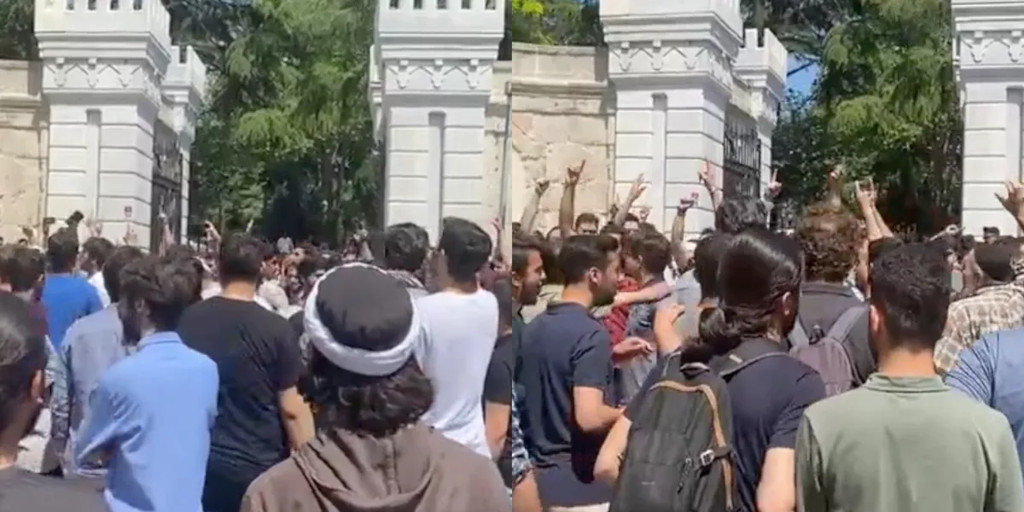A picnic scheduled to take place on the Beyazıt campus of İstanbul University as part of LGBTI Pride Week activities was canceled after it was targeted by radical Islamist groups who threatened to lynch attendees, local media reported on Friday.
While police didn’t disperse the group that had gathered in front of the campus gate and chanted “Takbir, Allahu Akbar” (God is the greatest) and “Beyazıt is ours and it will remain ours,” they briefly detained 26 students who turned out to support their friends, the organizers of the picnic.
The picnic, which was planned by the İstanbul University Equality Society to be held at 4 p.m. on Friday, was canceled due to security concerns, with the Equality Society announcing the development on social media and warning those planning to participate not to be seen in the vicinity in large groups and to leave Beyazıt safely.
The İstanbul Governor’s Office announced the detentions in a written statement, saying that 26 students were detained because those who gathered for the picnic refused to leave the area although police repeatedly warned them that the event they were about to hold was illegal and that they should cancel it.
The Equality Society then released a written statement, saying: “We exist as the students of this university, and we will continue to exist. … We are calling out to those who make us look like we are not legitimate, what’s not legitimate is you, it’s your fascism, your phobias and your attacks.”
Homosexuality is not illegal in Turkey, but homophobia is widespread. After a spectacular Pride March in İstanbul drew 100,000 people in 2014, the government responded by banning future events in the city, citing security concerns.
It is common for Turkish President Recep Tayyip Erdoğan and other politicians from the ruling Justice and Development Party (AKP) to attack LGBTI individuals and accuse them of perversion and ruining family values.
Turkey was ranked 48th among 49 countries as regards the human rights of LGBT people, according to the 2022 Rainbow Europe Map published by the International Lesbian, Gay, Bisexual, Trans and Intersex Association (ILGA)-Europe in May.
